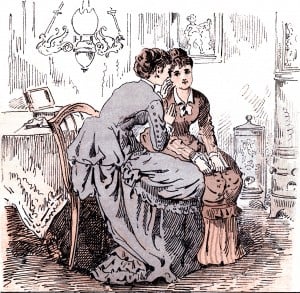Student: [waves book at teacher in hallway] Sir, this is the right book for our course, right?
Teacher: No! The correct book is the one I listed on the course outline, ordered through the bookstore, and showed you in class! Where did you find that one?
Student: A friend took your course a couple of years ago and said this was the book…
 This was the gist of a conversation a friend reported to me last week. He was frustrated that despite his efforts to ensure that students had access to his chosen course text, this student – who, he says, is a good student who has taken other courses with him – seems to have ignored the official channels and relied instead on information from another student. And this isn’t just a matter of a new edition of a recurring text; the books in question are two completely different tomes.
This was the gist of a conversation a friend reported to me last week. He was frustrated that despite his efforts to ensure that students had access to his chosen course text, this student – who, he says, is a good student who has taken other courses with him – seems to have ignored the official channels and relied instead on information from another student. And this isn’t just a matter of a new edition of a recurring text; the books in question are two completely different tomes.
Many teachers have experienced the hearsay phenomenon: a student will let slip that there’s a rumour circulating that a deadline has been extended, or a reading eliminated, or a class cancelled, and the teacher is left scrambling to undo the misinformation. As we can perhaps surmise from the list of examples, often the rumours are wishful thinking – of course students hope that deadline will be extended, or they’ll have one less text to read, or find themselves with a free period. But how do these whispers get started? Continue reading “Rumour has it…”
